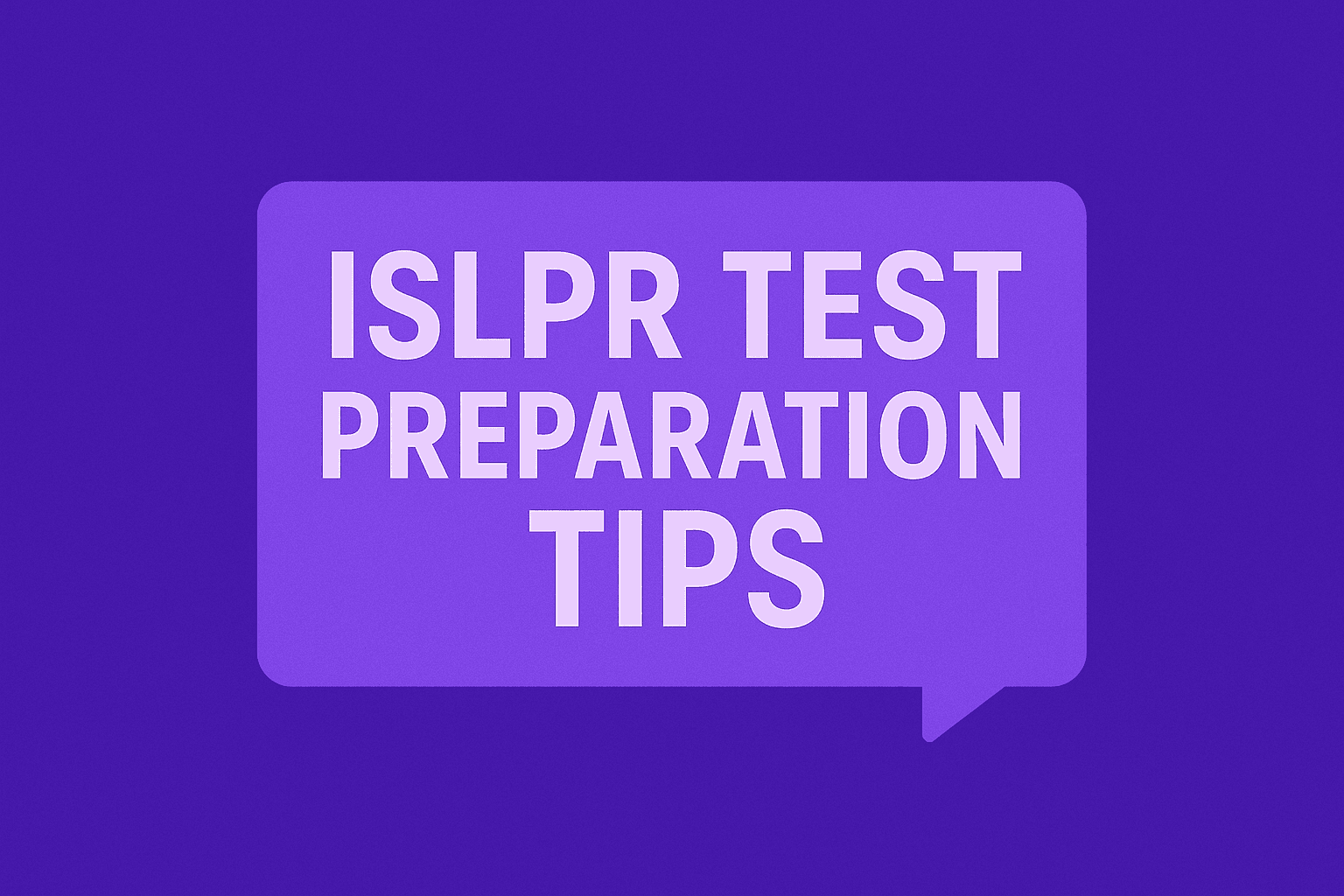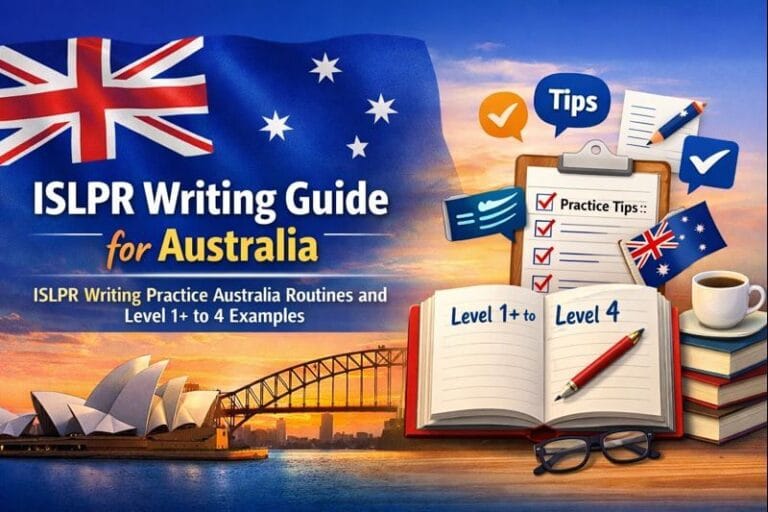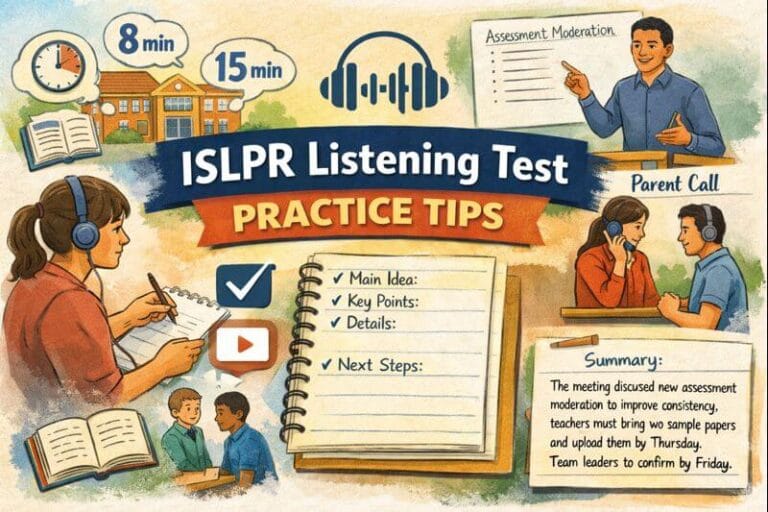The International Second Language Proficiency Ratings (ISLPR) test is a widely recognised English language proficiency assessment used in Australia and other countries for professional registration, academic entry, and immigration. Unlike IELTS or TOEFL, the ISLPR focuses on evaluating how well candidates use English in real-life contexts rather than relying on memorised responses or multiple-choice exercises. Its unique structure requires a different kind of preparation.
Many test-takers face the challenge of preparing within limited time. This essay provides ISLPR test preparation tips that will help you perform well even if you are short on time. The advice is organised into general strategies and specific ISLPR exam preparation guide tips for each of the four skills assessed: speaking, listening, reading, and writing.
Understanding the ISLPR Exam Format
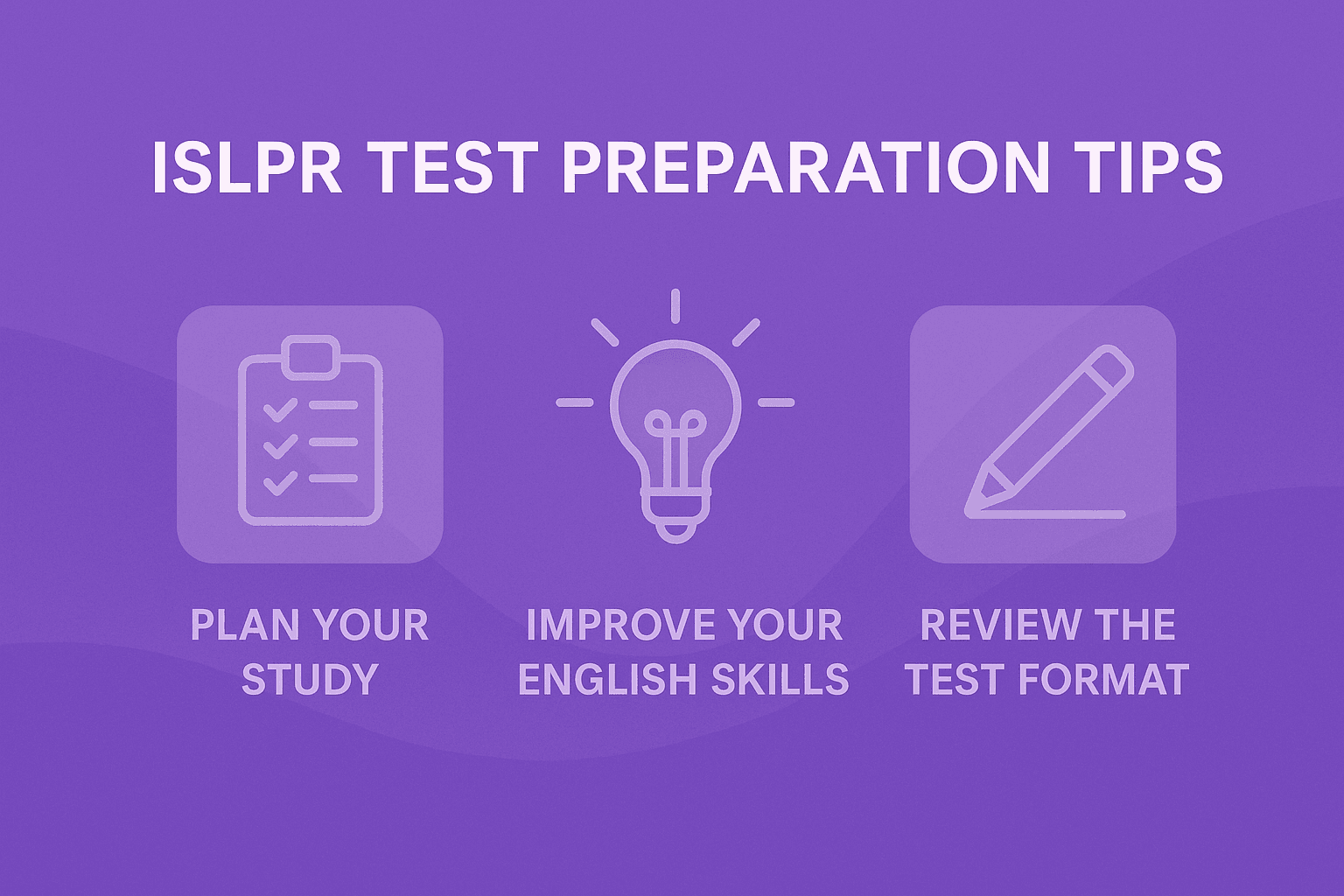
Before you can prepare effectively, it is crucial to understand the ISLPR test format. The exam evaluates four key skills: speaking, listening, reading, and writing. Each is assessed individually, but all are conducted in realistic and conversational ways.
- Speaking is assessed in a one-to-one interview where you engage in real conversations about familiar, professional, or academic topics.
- Listening involves responding to spoken English in real-world scenarios such as following instructions, understanding announcements, or discussing a short audio text.
- Reading tests your ability to comprehend and discuss written texts ranging from news articles to work-related documents.
- Writing requires you to compose texts such as reports, letters, or essays relevant to your personal or professional needs.
Scores range from 0 (no proficiency) to 5 (native-like proficiency). For professional purposes such as ISLPR preparation for teachers in Australia, a minimum of level 4 in each skill is often required.
General ISLPR Test Tips for Success
Focus on Real-Life English
The ISLPR is not a test you can prepare for by memorising set responses or rehearsing a fixed set of topics. Unlike other standardised tests, it does not publish sample tests, and there are no guaranteed question banks. The best way to prepare, particularly when short on time, is to immerse yourself in English in everyday contexts.
Avoid Shortcuts and Memorisation
Candidates often fall into the trap of practising set speeches or memorising phrases. This is not recommended. Examiners can quickly tell if your responses are rehearsed, and this may affect your ability to sustain a natural conversation. Instead, practise expressing yourself clearly and naturally.
Set Targeted Goals
If time is limited, focus on the skills where you are weakest. Begin by assessing your current proficiency, either informally by self-reflection or through a teacher or tutor. Set realistic goals that align with the score requirements of the institution or organisation you are applying to.
ISLPR Exam Preparation Guide: Strategies for Each Skill
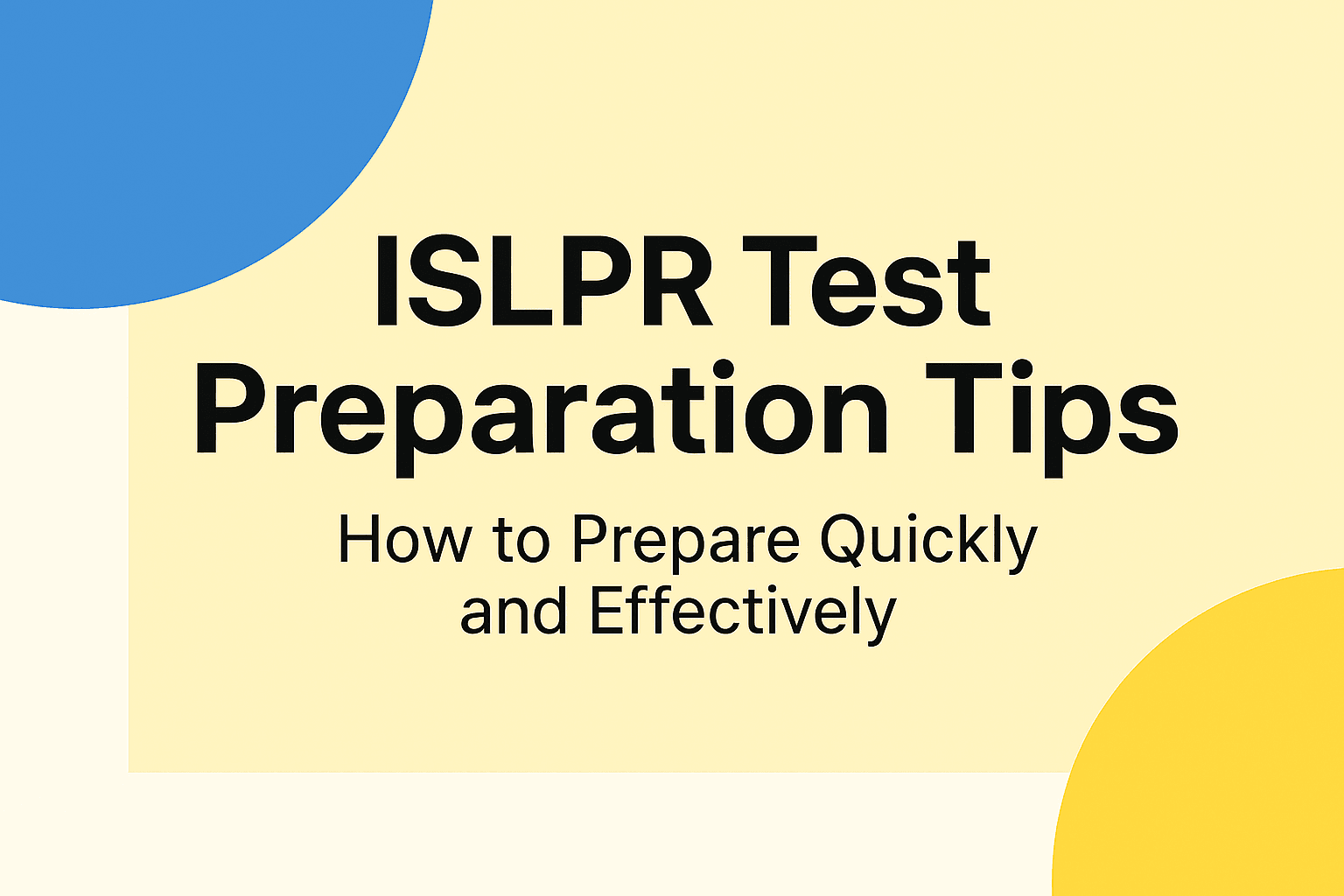
Speaking
Preparation
- Have real conversations with proficient English speakers. Prioritise natural discussions over rehearsed speeches.
- Practise explaining your opinions, describing experiences, and discussing professional topics relevant to your goals.
- Record yourself to identify hesitation, pronunciation difficulties, or vocabulary gaps.
On Test Day
- Follow normal conversational patterns such as pausing, turn-taking, and clarifying when necessary.
- Pay attention to the examiner’s non-verbal cues. If they seem confused, try to rephrase or clarify your point.
- Be honest if you do not know something or find a topic difficult.
- Keep your tone natural and your responses clear.
Listening
Preparation
- Listen to Australian radio, ABC programs, podcasts, and news bulletins.
- Expose yourself to different English accents.
- Practise listening actively by summarising what you hear, predicting what comes next, and noting key points.
On Test Day
- If you do not understand something, decide whether to wait for more context or ask for repetition or paraphrasing.
- Use your knowledge of text types. For example, a news broadcast will present information, while an interview will involve questions and answers.
- Pay attention to both content and attitude. You may be asked not only about what was said but also about the speaker’s tone or intention.
Reading
Preparation
- Read regularly, focusing on texts related to your professional or academic field. Start with simple texts and move to more complex ones such as national newspapers, reports, or journals.
- Practise different reading strategies: scanning for details, skimming for gist, and reading intensively for meaning.
- Develop paraphrasing skills. Being able to explain ideas in your own words is essential for showing comprehension.
On Test Day
- Understand what the examiner wants before beginning.
- Look at titles, headings, and topic sentences to guide your reading.
- Avoid repeating the exact words of the text when asked questions. Instead, summarise and rephrase.
- Keep answers direct and concise.
Writing
Preparation
- Write daily, focusing on real-world formats such as emails, reports, or opinion essays. Practise writing about 400 words in an hour, including time for planning and editing.
- Do not rely on memorised structures or clichés. Instead, focus on clarity, coherence, and purpose.
- Review formatting and editing conventions so your work is presented neatly.
On Test Day
- Carefully read the task sheet to understand the purpose, audience, and required format.
- Use the provided space for planning but keep it brief.
- Express yourself realistically and clearly. Short sentences are acceptable.
- Structure paragraphs according to your points.
- Edit your work by reading it to yourself to check flow and accuracy.
How to Prepare for ISLPR Test Quickly
When preparing under time pressure, prioritisation and strategy become critical.
- Identify your weakest skills and focus your time there.
- Use daily immersion: replace routine tasks with English — read, listen, and write in English wherever possible.
- Simulate the test: practise mock interviews, timed writing tasks, and discussions based on real-world texts.
- Seek feedback: if possible, book a tutorial with an accredited ISLPR tutor. Personalised feedback is particularly useful for quick improvement.
- Stay calm: manage stress with breathing techniques and pacing on test day.
Conclusion
Preparing for the ISLPR test when you are short on time requires smart planning. By following these ISLPR test preparation tips and focusing on real-life English, you can perform with confidence. This ISLPR exam preparation guide has shown that memorisation is not the key. Instead, you should focus on practical communication skills that reflect the reality of the test.
Whether you are an international student, a professional candidate, or involved in ISLPR preparation for teachers in Australia, success comes from clarity, calmness, and consistent practice. Use these ISLPR test tips for success to build confidence and achieve the scores you need.

